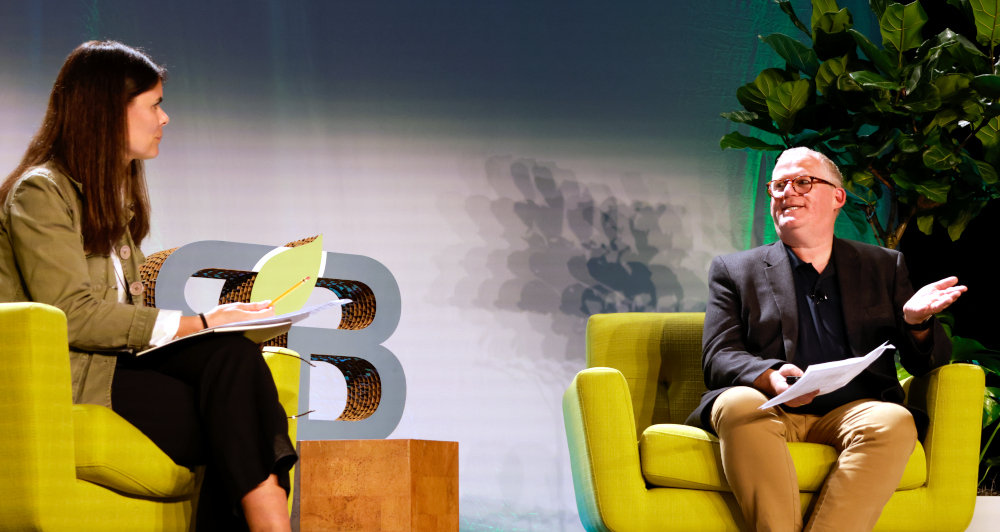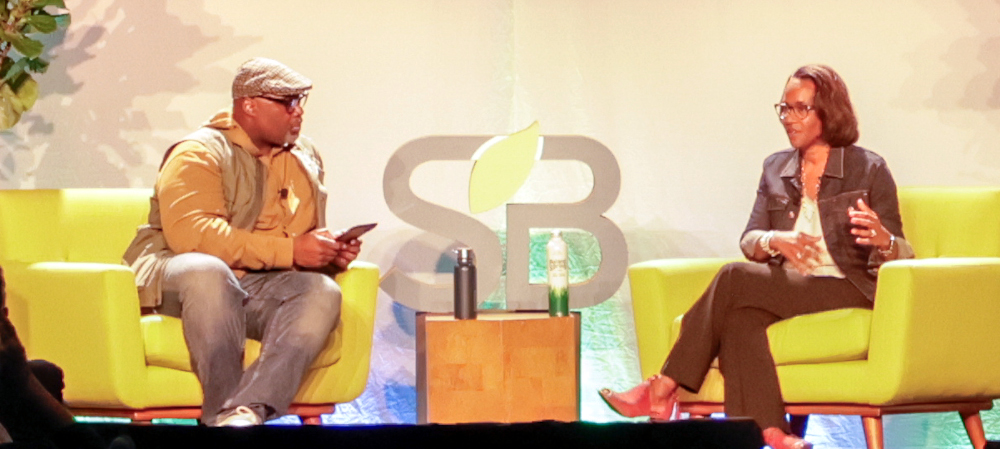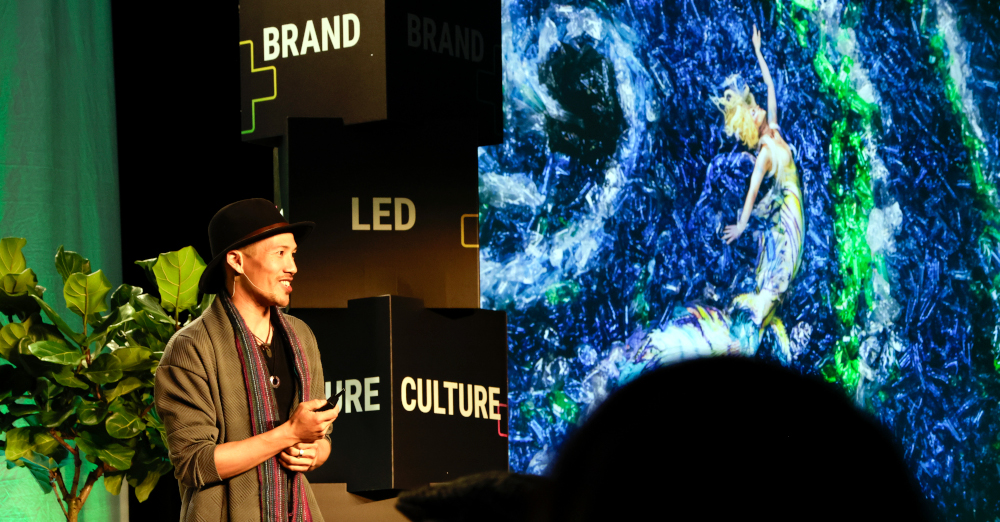Framing ESG efforts in polarizing times: Are you hunting or hibernating?
 Image credit: Karolina
Grabowska
Image credit: Karolina
Grabowska
In today’s current political and regulatory environment, many brands have become
more reluctant to publicly communicate about sustainability or ESG progress and
commitments.
“In this time of ‘Purpose Paralysis,’ it can feel as if you are wading into bear
country when communicating about purpose and social impact. As a brand — are you
hunting or hibernating?” said Freya
Williams, Chief Strategy Officer
at Revolt and author of Green Giants: How Smart
Companies Turn Sustainability into Billion-Dollar
Businesses
(Harper Collins Leadership, 2022). “Over the course of the last 12 months, there
has been a bit of an ESG
backlash.
The current advice has been sort of narrow — either be silent or stay the
course. We thought we needed more nuanced guidance.”
Williams and Jack Farrelly,
Revolt’s Executive Strategy Director, shared research findings among US
consumers that ranked 50 different societal issues from least to most
polarizing: Climate change, gender inequality, and race relations and racism
were among the top. Societal issues with a more unifying effect (or what they
call “teddy bear” issues) included unemployment and job security, fair wages,
care for the elderly, and the decline of family relationships.
Williams and Farrelly stressed two critical decisions for brands to make —
-
Which issues should I choose to support as a brand?
-
Which should I communicate about publicly?
In the last half of the session, participants workshopped approaches to specific
issues such as climate change and access to education. For each issue, five
different frames were provided; and each group discussed how they would rank the
statements from least polarizing to most and why. In the end, the more centrist
frames were often the least polarizing and the most effective in getting the
intended message across.
Partnerships driving sustainable shifts across industries
 Image credit: Health Care Without
Harm
Image credit: Health Care Without
Harm
Partnerships can wield transformative power to drive tangible impacts and ignite
virtuous cycles of behavioral change across various stakeholders. This workshop
delved into case studies from Diageo, ReFED, Eneration, CARE,
Aveda and Copia showcasing the ripple effects of collaboration across
diverse industries and illustrating the potential of collaboration in generating
both immediate impact and enduring positive change.
Jennifer MacArthur, Director
and Executive Producer of Family Tree
— a film that showcases two African American forest-owning families from North
Carolina whose history intertwines with the origins of the timber industry —
discussed the need for the media to tackle larger issues such as climate change
beyond the confines of conventional activism. To do that, partnerships — such as
the work the production did with the Arbor Day
Foundation — can help engage people to instigate
meaningful change and foster awareness and action.
Copia’s work also aims to make partnerships a key pillar
to creating change and action in the world of sustainability. Paige Sullivan
Lowe, VP of Customer Success,
talked about how the donation engine is working to address food waste: Using its
platform to connect donors with excess food with a wide network of partners to
receive it, Copia give the donors real-time information — including greenhouse
gas reductions and enhanced tax deductions, and monitoring their donations —
through its dashboard. Moving beyond the typical food bank partnerships, Copia
is able to get food to other organizations including women’s shelters and
veteran homes. A case study involving 1
Hotels
exemplified how behavioral changes and strategic partnerships can significantly
reduce food waste while fostering community engagement through employee
volunteer initiatives and meal donation programs.
Another organization utilizing a vast network to combat food waste is
ReFED.
VP of Operations and Finance Shawn
Shepherd spoke on the
organization's goal to create a sustainable, resilient and inclusive food
system. On the alarming statistic that one-third of produced food is never
consumed while millions of Americans face food insecurity, she said: “The US
signed on to agreements to cut food waste by 2030, but we aren’t going fast
enough — because we need more people to join the fight.” Shepherd drilled down
on the importance of data-driven insights and collaborations with NGOs and
businesses to reduce food waste at every level of the supply chain. Initiatives
such as the Pacific Coast Food Waste
Commitment
and the US Food Waste Pact demonstrate
ReFED’s commitment to collective action and measurable goals. Its approach
includes education, behavior-change campaigns and practical solutions to
minimize food waste — emphasizing the importance of understanding the problem,
forming strategic partnerships, and implementing scalable solutions with
documented processes for success.
Ana Fitzgibbons, Alcohol in Society
Director at Diageo North
America,
highlighted Diageo’s community impact through its work to encourage responsible
alcohol consumption. Fitzgibbons identified four key steps for purposeful
partnerships: defining goals transparently, listening to partners and advisors,
co-creating solutions, and allocating resources effectively. The strategy
involves starting with small, regional initiatives, gradually expanding and
benchmarking performance against clear goals. Effective communication, active
listening and celebrating achievements together are crucial for success — as
well as fostering partnerships and reflecting on progress to expand existing
initiatives.
Partnerships are also critical in Eneration’s
mission to lower the environmental impact of healthcare. For the past 15 years,
the Gundersen Health System initiative has
been working to reduce the cost of healthcare and improve community health
through energy efficiency and sustainability. CEO Alan
Eber discussed the challenges
the industry faces — including a lack of client interest in sustainability,
retention concerns and low margins. Given that younger generations value
sustainability, the healthcare-cost crisis, and the industry's significant
environmental footprint, driving sustainability is crucial. Eber said forging
local partnerships and fostering a culture of collaboration has helped Eneration
drive energy efficiency and adoption of renewables in healthcare facilities —
creating both emissions and cost savings.
Nicole Call, Director of
Package Development at Aveda, shared that the vegan
personal-care company thrives on partnerships with a variety of like-minded
stakeholders — including retailers, artists, stylists, diverse consumers,
employees, suppliers and over 100 NGOs — also committed to sustainable and
ethical practices. When it comes to packaging, Call credited supplier
partnerships with helping the brand become the first in the industry to use 100
percent post-consumer recycled PET in a product package; and it continues to set
industry standards through partnerships with material suppliers that share its
values. She also credits an internal culture of pushing boundaries and
questioning norms — emphasizing that positive change starts from within.
While an internal culture that embraces change is critical in developing new
partnerships, sometimes there must be a bridge between the private and public
sectors. Kaitlin Love, Global
Sustainability Principal at CARE, discussed the
organization’s development and humanitarian efforts targeting poverty reduction
with a focus on women and girls in countries such as Tanzania. Working on
integrating social sustainability and impact within global supply chains, CARE
has shifted the narrative towards mutually beneficial, strategic relationships
rather than the traditional donor-based approach. Love highlighted CARE’s work
with Kazi Yetu — a social enterprise that aims to
keep the economic benefits of the country’s tea production in Tanzania — as an
example of CARE’s work to establish equitable supply chains and overcome
challenges in working with NGOs and the public sector, and ensuring women and
savings
groups
are central to these models.
By examining real-world case studies, attendees gained a nuanced understanding
of how collaborative efforts can yield tangible benefits while also nurturing
virtuous cycles of behavioral shifts among stakeholders — and were encouraged to
explore collaboration as a catalyst for driving sustainable, inclusive and
impactful change within their own spheres of influence.
The rocky road to culture-changing brand communications
Finally, the opening keynotes covered themes ranging from cultural intelligence
and brand purpose integration to circular packaging and the role of art in
climate and sustainability discourse; and concluded with a welcome to
Minnesota — along with a brief history of the state’s contributions to both
corporate innovation and purpose — from Kari
Niedfeldt-Thomas, Mayor of
New Brighton and Managing Director and COO at Chief Executives for
Corporate Purpose.
 Dr. Anastasia Kārkliņa Gabriel | Image credit: Sustainable Brands
Dr. Anastasia Kārkliņa Gabriel | Image credit: Sustainable Brands
Dr. Anastasia Kārkliņa
Gabriel, Senior Lead of Global
Insights at Reddit, began by highlighting the power
of cultural intelligence and shared ways Reddit uses data from community
conversations on its platform to inform consumer trends and cultural shifts in
consumer mindsets and behavior. She challenged the brand leaders in the room to
use their influence as culture creators to drive a mass cultural adoption of a
new way of living that is less focused on consumerism: “All brands are a driving
force behind how we live and consume sustainably — or not,” she said.
 Freya Williams and Dale Green | Image credit: Sustainable Brands
Freya Williams and Dale Green | Image credit: Sustainable Brands
Next, Revolt’s Freya Williams joined Mars’ Dale
Green to discuss Green’s
journey from a “marketeer” for global brands including Pedigree and
Snickers to his latest role as Head of Brand Purpose. He saw that the brand
and marketing teams were not delivering the impact they could related to purpose
and gradually focused more of his time as a “Purpose Integration” professional
inside the organization. Green shared some creative hits (including a recent
Maltesers
campaign
which highlighted the prevalence of and lack of conversation around postpartum
mental health struggles; after the campaign launch, the brand had its best
quarter ever and 200,000 women reached out for help) and misses (M&M’s
“Fans of Wind” campaign) from his
tenure — and stressed the importance of sustainability messaging coming from an
integrated place within a company’s brand identity and purpose, rather than a
bolt-on.
 Sam Monnie and Kheri Holland Tillman | Image credit: Sustainable Brands
Sam Monnie and Kheri Holland Tillman | Image credit: Sustainable Brands
Samuel Monnie, the day’s MC and
SB’s SVP of Revenue, then joined Kheri Holland
Tillman, Chief
Marketing Officer at BlueTriton Brands, to
explore the risk-reward profile of communicating too little or too much on
sensitive issues. BlueTriton is working on several commitments to address the
prevalence of plastics in the environment and recently launched several of its
water brands in an aluminum package to achieve better reuse and circularity for
its packaging footprint. Tillman highlighted the importance of a major theme
throughout the week and the sustainability world — working together, not in
silos — to effectively address critical issues.
 Benjamin Von Wong | Image credit: Sustainable Brands
Benjamin Von Wong | Image credit: Sustainable Brands
Then, renowned photographer and activist artist Benjamin Von
Wong reminded us of the impact of experiencing the
unexpected through art and its incredible potential as a catalyst for
conversation and behavior change. His environmental art installations all over
the world have created arresting visuals and millions of views for causes
including ocean plastics,
fashion pollution and the
environmental impact of
Bitcoin.
Von Wong shared examples of his art and activism partnerships with NGOs and
global brands including
Starbucks,
Dell
and
Kiehl’s.
He said the power of art is that doesn't tell you what to think — it resonates
with viewers by telling them what they stand for.
Von Wong shared three prompts for sustainability practitioners/marketers to
consider:
• Which movements can you support?
• Which solutions can you champion?
• What hope can you create?
Get the latest insights, trends, and innovations to help position yourself at the forefront of sustainable business leadership—delivered straight to your inbox.
Mara Slade is a seasoned communications professional having worked both in-house in sustainability roles and at top creative agencies including Edelman and Digital Kitchen. She has led corporate ESG reporting projects for a variety of Fortune 500 clients ranging from tech, retail, sustainable agriculture, consumer packaged goods, financial services, among others. She is a certified GRI reporter with an MBA from Presidio Graduate School in Sustainable Management.
Impact Manager, Purpose + Sustainability
Formerly working in the advertising world in Kansas City, Hannah Zimmerman has now married her past experience with her passion for sustainability. When she isn't chasing her four-year-old daughter or helping companies along on their sustainability journey through consulting, reporting, communications and certifications, she is working on her master's in Sustainability through Harvard.
Published May 9, 2024 12pm EDT / 9am PDT / 5pm BST / 6pm CEST